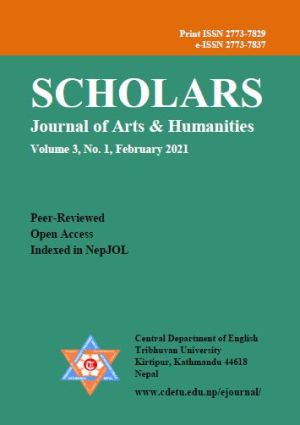Repercussions of Stereotyping and Cultural Bigotry in John Updike’s 9/11 Fiction
DOI:
https://doi.org/10.3126/sjah.v3i1.35375Keywords:
Repercussion, ethnicity, isolation, exclusion, bigotry, separation, integration, diversityAbstract
This article analyzes Updike’s 9/11 novel, Terrorist to explore the implications of stereotyping and cultural bigotry in US society in the aftermath. The novelist demonstrates the problematic in the cultural integration of minorities particularly Muslims and Jews as represented by Ahmad and Jack Levy. The primary motto of the article is to analyze the novel from the perspective of the protagonists Ahmad and Jack who suffer the cultural and social exclusion in American society. Ahmad is the victim of cultural bigotry and Jack Levy faces discriminatory practices at school. The isolation and marginalization of Ahmad and Jack respectively imply the ethnic crevices prevalent in the US society. The author demonstrates that the dominant cultural groups: European and African Americans do not accept the religious minorities: Muslims and Jews. Consequently, Muslims who are overtly the targets of cultural hatred and marginalization in the aftermath of the 9/11 as portrayed in the novel become hostile toward the Western culture. The efforts for integration of religious minorities are cosmetic as exemplified in the cases of Ahmad and Jack in the text. The writer makes a balance in representing both dominant and Muslim cultures to demonstrate the problems pertaining to ethnic groups at their failure in accommodating differences. The cultural separation and hatred prevalent in US society become obstacles even for those like Jack who seek to integrate. The paper eventually demonstrates the possibility of integration of religious minorities when both mainstream Americans and people of religious minorities conform to accepting the differences.
Downloads
Downloads
Published
How to Cite
Issue
Section
License
© Central Department of English, Tribhuvan University and Authors




